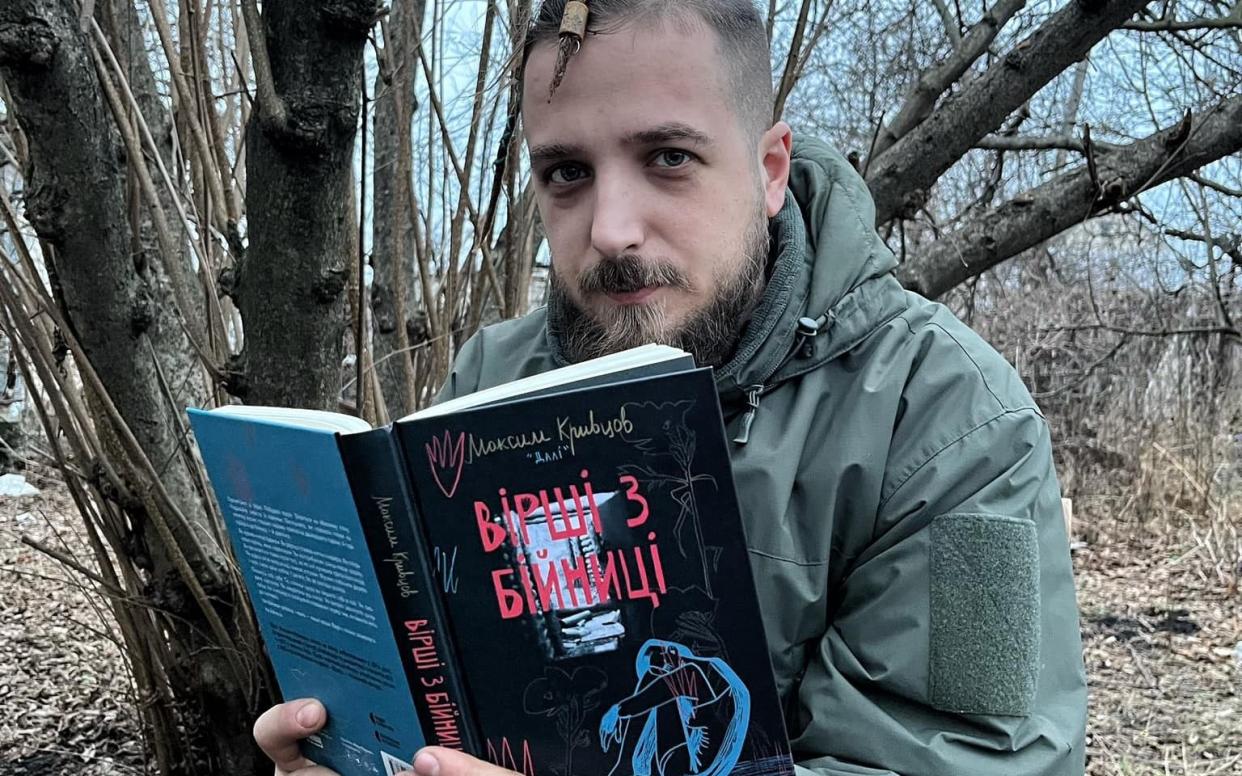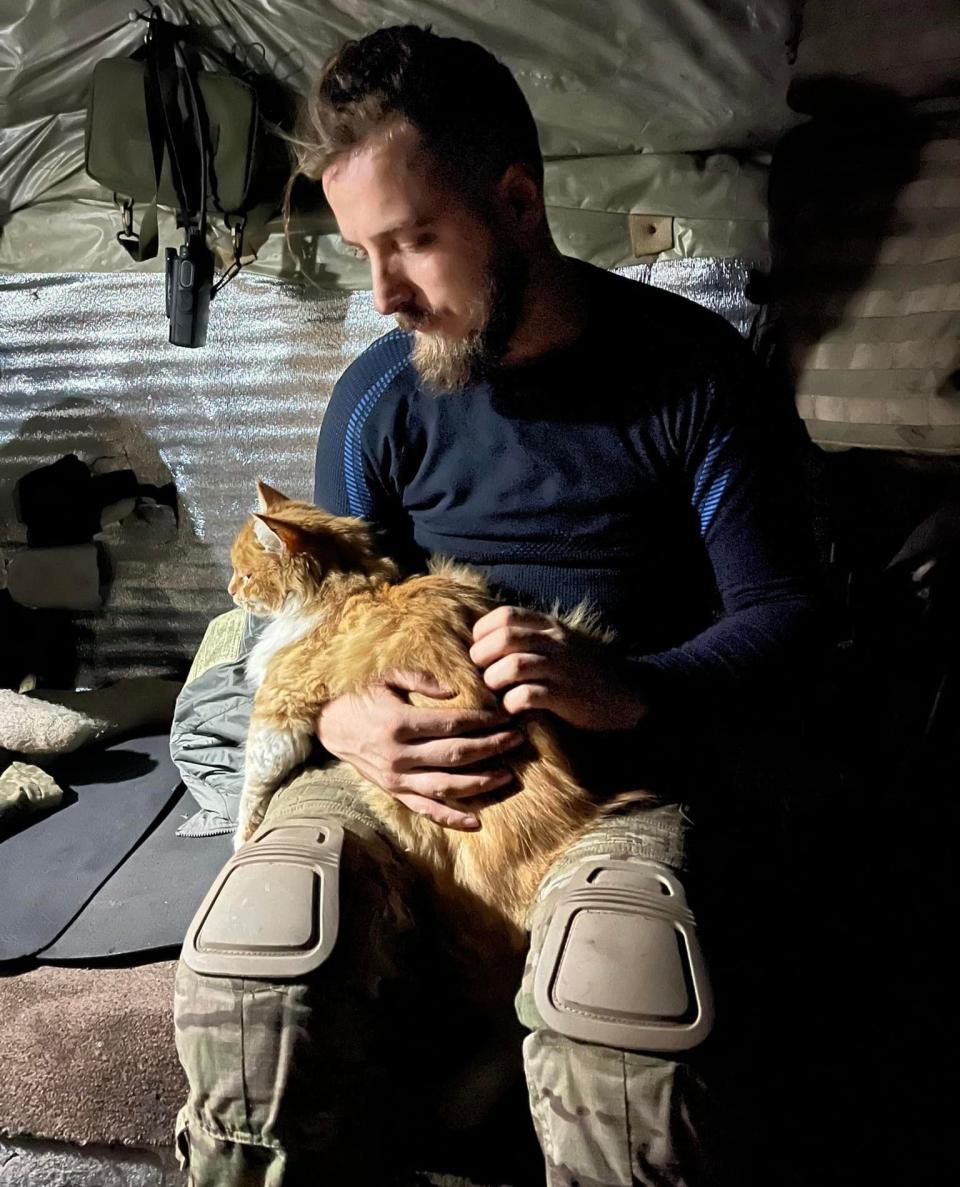Award-winning Ukrainian war poet killed in action

A Ukrainian soldier who had been hailed as one of the country’s emerging war poets has been killed in action.
Maxim Kryvtsov, whose first solo anthology was listed as one of the top Ukrainian poetry publications by Ukraine PEN last year, died in the Kharkiv region on Sunday. He was 33.
“My dearest son will sprout violets,” his mother Nadia Kryvtsov wrote announcing his death, in reference to one of his last poems.
Mr Kryvtsov fought as a volunteer during Russia’s first invasion of Ukraine in 2014. Since the 2022 full-scale invasion his ability to express in verse the ordinary soldiers’ war gained him a strong following on Facebook and Instagram, and his first solo anthology was published to rave reviews last year.
His last poem, posted on Facebook two days before he was killed, is written from the point of view of a soldier describing his own death.

“He was a man of incredible strength of spirit, incredibly bright, the kindest,” said Kateryna Prymak, a volunteer Ukrainian Women’s Veteran Movement and close friend.
“He was a man who loved everything: life, the forest, children, animals, poetry, a man who combined the incompatible: a warrior and a poet. And he was a man of incredible strength of spirit who always helped. Everyone rallied around him. He took all the cats, all the dogs in his care. He served for a long time and sacrificed himself completely.”
Lyubko Deresh, another Ukrainian writer, said he had been fortunate to have known Mr Kryvtsov and shared an excerpt from a novel he had been working on.
“...When we return from rotations, drive home in the car, we do not feel happiness, although we want to return. Probably. We feel one thing – emptiness. One emptiness common to all, collective, like a memory. We choke on it and suffocate from her vapours.”
Mr Kryvtsov was born in Rivne, western Ukraine, in 1990.
He graduated from Kyiv national university of technology and design in 2013, but only worked for half a year before the protest movement that would become the Maidan revolution began.

He was drawn into the demonstrations and in the aftermath volunteered to fight in the war in Donbas, where Russia launched its first invasion a few months after the revolution.
Serving with the national volunteer corps, a unit run by the nationalist group Right Sector, and later the National Guard, he saw action in hotspots including Pisky and Avdiivka and began to write about his experiences.
He admitted to finding the first years of war testing. “I was haunted by a terrifying dream, frequently revisiting it in my sleep: roaming around Kyiv with a rifle in my hands, and waiting for my metro stop with a weapon on my knees,” he said in an interview last year.
A vegan with blue hair
“He was a designer, a kind of vegan with blue hair,” recalled Ms Pryimak, who became friends with Mr Kryvtsov on Maidan. “The guys in that unit could hardly believe that a guy who didn’t look like a warrior at all would be able to take it all. He endured more than anyone else. He has come a long way as a warrior.”
He was told to choose a call sign. When the first three he suggested were rejected because dozens of men had already chosen them, he decided to call himself “Dali” after the Spanish painter, because he had a similar moustache. He would continue to fight under that call sign until his death.
In 2015 he signed a three-year contract with the National Guard and on arrival at his unit asked to be made a machine gunner, saying in an interview in 2020 that he “realised that it is better to be a machine gunner – you are constantly taken to a position, you are constantly given work, you are not stupid with that rifle”.
It was an easy transfer – no one else wanted the job because they did not want to have to drag the heavy weapon around. The title of his book, Poems from the Loophole, references subsequent long hours looking out of an aperture at no-man’s land.
He left the army in 2018 after serving out his contract, but continued to work with old comrades at a charity supporting veterans and a children’s adventure camp.
In 2019 his poem Yellow Tape, named for the tactical recognition flashes worn by Ukrainian troops in combat, was released by the rock band Yurcash.
The song enjoyed a revival after the full-scale invasion of 2022 when it became something of an anthem for those headed to the front.
Last year he was one of the authors selected for Between Sirens, an anthology of war poems published in 2023, and Book love 2.0 Love and War. Poems from the Loophole was published the same year and sold out. PEN Ukraine listed it as one of the best works of poetry of the year.

